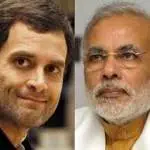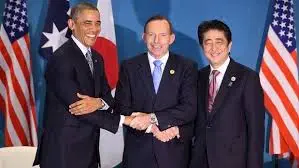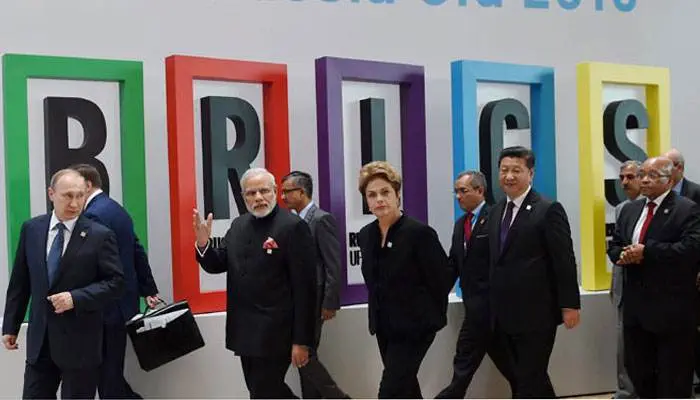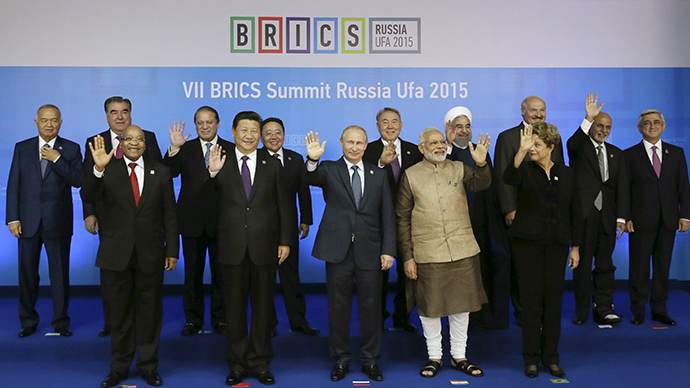Who will succeed as the next Indian prime minister?
 Asian Godfathers, a book by Joe Studwell is about the few families that control countries in Southeast Asia and Hong Kong. These families were the contractors or collaborators of the colonialists and they gained the privilege of being leading authoritative personalities within their countries.
Asian Godfathers, a book by Joe Studwell is about the few families that control countries in Southeast Asia and Hong Kong. These families were the contractors or collaborators of the colonialists and they gained the privilege of being leading authoritative personalities within their countries.
[yop_poll id=”3″]
If one were to observe the pattern of leadership in India and several Asian countries one thing emerges: the nexus between personality and the authority they wield. The more important aspect is the authority and power they enjoy. Institutional leadership is accepted and revered because of the devolution of power through elitist ancestry which came about from being powerful in the first place.
The book doesn’t talk about India and South Asia as it was outside its purview. One can apply the same lens on India and can see the power matrix in India revolves around the collaborators to erstwhile colonial powers. Most of them took to politics like a duck takes to water and democracy didn’t change a thing. You still have ‘rajas, maharajas and nawabs’. They are all in the parliament with people connected to zamindars and industrialists.
The others who are not from such backgrounds are genuinely popular or members of the Rajya Sabha, a house of honorary parliamentarians.
What happens when someone who is not from such a background comes to power? It has happened in India’s parliamentary history and there have been prime ministers who could not capitalize their appointment at a national level, because they were thrown up as leaders more by a lack of choice than any charisma or ancestral power block.
An aspect that does affect the selection of leaders in a country fed on the idea of ‘good’ over ‘evil’ is the idea of the person being ‘good’. This factor, however, is usually pushed into the background when voters are bribed or intimated by the perceived blocks of power.
BJP and international relations
The BJP came to power once earlier and rode on two aspects. First: because of the popularity of Atal Bihari Vajpayee and his personality as a ‘good’ man. Second: the incumbency factor; people wanted a change from the dynastic rule of the Congress.
This may be a simplistic approach to understanding the reasons for the rise of BJP to power, and, the possible cause of its decline being its lack of ability to remain in power. Then there is a conflict of perception of it being a Hindu Nationalistic Party with secular intentions. The Congress on the other hand does not have a conflict of ideology in regard.
Despite its structure as a secularist party its association with the VHP and RSS got them a label of being a Hindu Nationalistic Party. The international community sees it as thus. It did pose a challenge to China who saw similarity with it in the Party’s aspirations. The party’s association with RSS as a rival to its own Red Guards, the concept of Hindutva and Akhand Bharath to its own ideology and expansionism and the nuclearisation of India oriented to a declared ‘enemy’ i.e.: China.
Like India all the Asian countries recognize and bow to what is perceived as the centre of power. The Chinese invitation to Sonia Gandhi to the Beijing Olympics is an example that clearly shows that they know where the power is focused in India. Therefore, and not limited to this example alone, one can conclude that there is a clear perception of power and devolutionary power in the case of Indian political parties.
Almost all prime ministers have been presidents of their parties with a few exceptions. These are the two centers of power in Indian party politics. In the case of the Congress Party the centre of power has been with the Gandhi Family. No matter who is the prime minister, power is devolved from the controlling family. There are advantages of this structure as the party has clear idea of who calls the shots. A convenient adaptation of democratic means in a society that believes in institutionalized leadership.
Rahul or Modi is the question
Rahul or Modi, their success as prime minister will depend on the degree of power within the party that each one enjoys to be the executive head of the nation. In this regard Rahul has a clear edge.
The other aspect to consider is the level of national presence a party enjoys; currently the Indian National Congress enjoys a wider popularity.
Modi has emerged as a modern progressive leader and has shown it in making Gujarat a model for other states to follow. Such progress has been shown in the past by other ministers too if you consider Chandra Bubu Naidu in Andhra and the Gandhi family in Rae Bareli. The comparison may not be entirely an equal and consistent one but serves to indicate that success at the state or constituency level does not automatically translate to a national one.
The nation currently expects its leadership to resolve domestic issues and international ones. Indian parliamentary politics has known to be one of being drawn inwards in trying to remain in power rather than a leadership that looks beyond to create reform. In this regard there is expectation from Modi who will bring out political and economic reform to move India forward and address certain international issues with a populist and pragmatic approach. While there is potential in his leadership, there is the question of his party’s support and the question of the power he can derive being the prime minister, while not being the party president. It can be argued that party ideology should guide the prime ministerial candidate. In the case of the BJP where power is drawn from ideology rather than personalities and ancestry, Modi’s dynamism will be better served by him being both the party president and prime minister or perhaps he has been groomed to be the next prime minister and has experience at the national level.
Rahul on the other hand has several advantages pretty much like Modi but a clear one in having absolute power. His dynamism as a minister or leader has not been visible as that of Modi, he is better equipped to deal with party politics at the national level, being groomed into it literally from the cradle.
Social media and Indian elections
The prime minister’s position is quite independent of winning the elections on an individual basis and depends on the party’s success. If there was a direct vote like in the US presidential elections then the contest of Rahul vs Modi would have played into social media and Modi would definitely have an edge.
The percentage of population that actually uses social media to make decision is questionable. The power of sms campaigns will play a major role provided it considers the legality of the telecoms engaging with party ad campaigns. 2014 elections could be a game changer considering the role that social media can play.
BJP has a lot of ground to gain before thinking of the prime ministerial candidate; it is a no brainer when it comes to the Congress.
It is early days. May the best person win … at least we wish!
To start with … hit the like button or vote!







Hi Pradeep,
Good bit of writing very relevant to the ground realities. Where do we find the book you published recently?
Best wishes. Hira